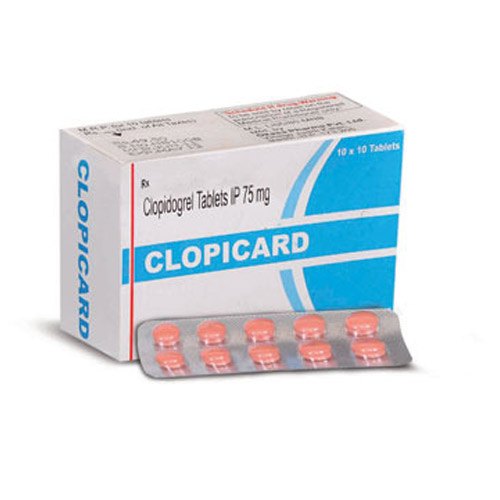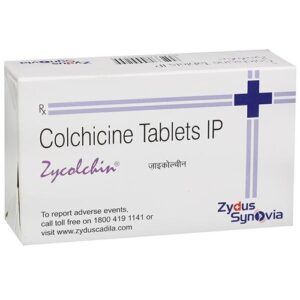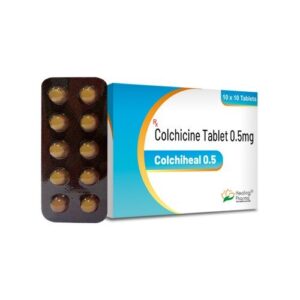Overview of Clopidogrel 75 Mg
Clopidogrel 75 mg is a medication used to prevent blood clots in people with certain medical conditions. It belongs to a class of drugs known as antiplatelet agents and works by preventing platelets (small blood cells) from sticking together and forming clots.
Clopidogrel is commonly used to prevent heart attacks, strokes, and other cardiovascular events in people who have had a recent heart attack or stroke, or who have certain types of heart or blood vessel disease. It may also be used in combination with aspirin to prevent blood clots in people with unstable angina or who have had certain types of heart procedures, such as coronary artery stenting.
The usual dose of Clopidogrel is taken once daily, with or without food. It may take several days or weeks for the full antiplatelet effect of Clopidogrel to develop, so it is important to continue taking it as prescribed even if you do not feel any immediate benefits.
Like all medications, Clopidogrel may cause side effects. Common side effects include bleeding, bruising, and upset stomach. Rare but serious side effects may include severe bleeding, allergic reactions, and liver or kidney problems. It is important to let your healthcare provider know if you experience any side effects while taking Clopidogrel.
How does it work? Clopidogrel 75 Mg
Clopidogrel works by blocking a specific receptor on the surface of platelets, known as the P2Y12 receptor. Platelets are small blood cells that play a key role in the formation of blood clots. When there is damage to a blood vessel, platelets become activated and clump together to form a plug, which helps to stop bleeding.
However, in some situations, such as in people with certain medical conditions, platelets can become overactive and form clots inside blood vessels, which can lead to serious health problems, such as heart attacks and strokes.
Clopidogrel works by inhibiting the P2Y12 receptor on platelets, which prevents the activation of platelets and the formation of blood clots. By doing so, Clopidogrel helps to reduce the risk of blood clots and the associated health complications.
The medication is often used in combination with aspirin, which also helps to prevent platelet activation, to provide even greater protection against blood clots.
It is most commonly used to Clopidogrel
Clopidogrel is most commonly used to prevent blood clots in people who have had a recent heart attack or stroke, or who have certain types of heart or blood vessel disease.
It may also be used in combination with aspirin to prevent blood clots in people with unstable angina or who have had certain types of heart procedures, such as coronary artery stenting. Additionally, Clopidogrel may be used for other conditions as determined by a healthcare provider.
The benefits of using Clopidogrel include:
Prevention of blood clots: Clopidogrel is a potent antiplatelet medication that helps to prevent platelets from clumping together and forming blood clots. This can reduce the risk of serious health problems, such as heart attacks, strokes, and other cardiovascular events.
Reducing the risk of complications after heart procedures: Clopidogrel is often used in combination with aspirin to reduce the risk of blood clots and complications after certain heart procedures, such as coronary artery stenting.
Effective treatment: Clopidogrel has been shown to be an effective treatment for preventing blood clots and reducing the risk of cardiovascular events in people with a history of heart disease, stroke, or other vascular conditions.
Convenience: Clopidogrel is typically taken once a day, making it a convenient option for long-term use.
Well-tolerated: Clopidogrel is generally well-tolerated by most people, with few serious side effects.
It’s important to note that the benefits of using Clopidogrel must be weighed against the potential risks, and the medication should only be used under the guidance of a healthcare provider.
How to take it? Clopidogrel 75 mg
Clopidogrel should be taken exactly as prescribed by a healthcare provider. It can be taken with or without food, and should be swallowed whole with a glass of water. Do not crush or chew the tablets.
The usual dose of Clopidogrel is taken once daily. It’s important to take Clopidogrel regularly, at the same time each day, to maintain a consistent level of the medication in the bloodstream.
If a dose of Clopidogrel is missed, it should be taken as soon as possible, unless it is close to the time of the next dose. In that case, the missed dose should be skipped and the regular dosing schedule should be resumed.
It may take several days or weeks for the full antiplatelet effect of Clopidogrel to develop, so it’s important to continue taking the medication as prescribed even if there are no immediate symptoms or benefits.
If you have any questions or concerns about how to take Clopidogrel, or if you experience any side effects while taking it, you should talk to your healthcare provider.






Reviews
There are no reviews yet.